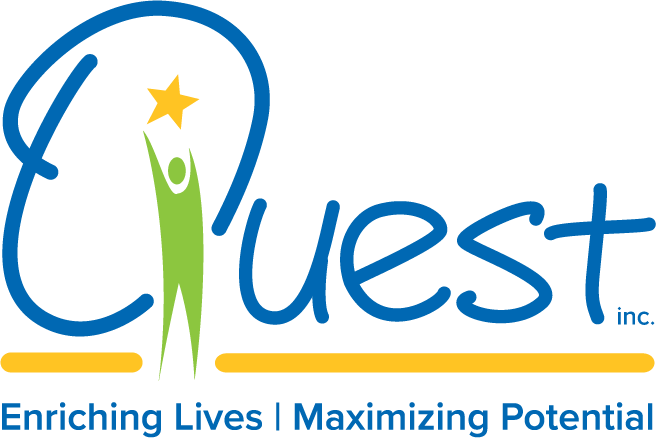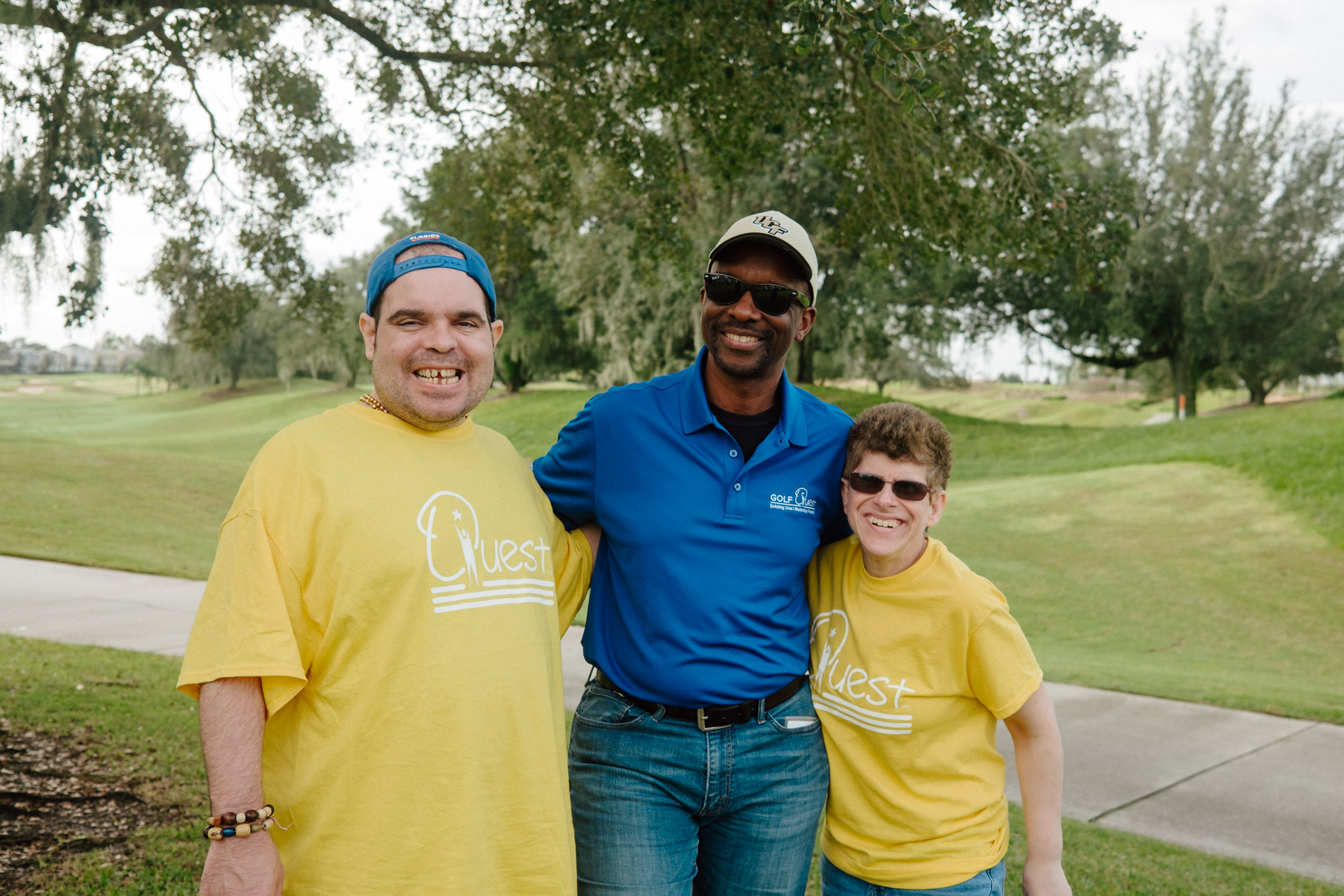Quest, Inc. began with a single location serving just eight individuals with developmental disabilities. Today, the organization has expanded to over 20 locations, supporting more than 500 individuals across Orlando and Tampa daily.
Honoring Developmental Disabilities Awareness Month
As March marks Developmental Disabilities Awareness Month, we take this opportunity to celebrate the incredible achievements of individuals with developmental disabilities while recognizing and addressing their unique experiences and ongoing challenges.
We spoke with John R. Gill, Quest’s President and CEO, on the vital role of awareness and continued advocacy for individuals with developmental disabilities.
Q: What distinctive challenges do individuals with developmental disabilities commonly encounter, and what are some common misconceptions?
Gill: Individuals with developmental disabilities are seen as an “invisible” population. Many people don’t realize the scope of developmental disabilities beyond familiar conditions like autism, Down syndrome and cerebral palsy. A common misconception is that these individuals don’t understand their surroundings. That is not true. They are fully engaged and want to connect and participate.
Q: How would you define inclusivity and its importance in raising awareness about developmental disabilities?
Gill: Everything we do embodies inclusivity. The context of inclusiveness arose due to institutions like Willowbrook in New York, built to house 4,000 children and adults with disabilities. It ended up housing over 6,000 people in very terrible conditions. When it was exposed, it ultimately allowed these individuals opportunities to live in the community. Quest is here to help them realize that right to live wherever they can, as long as they can, with proper support to its fullest. When we include individuals with developmental disabilities, everybody wins. It is a reminder of our shared humanity despite differing challenges.
Q: As a leader, how do you stay informed to ensure we lead in advocacy for individuals with developmental disabilities? What key statistics or trends should people be aware of?
Gill: I’m an avid reader. Staying connected to local, state and national organizations like the Florida Association of Rehabilitative Facilities and Ancor is crucial. In Florida, there are around 400,000 individuals with a developmental disability, yet only about 50,000 receive state support, with a waitlist of approximately 20,000 — often spanning six to eight years. Funding and staffing remain significant hurdles, compelling our continuous dialogue with legislators to advocate for better support of individuals with developmental disabilities.
Q: What milestones or upcoming initiatives is Quest focusing on to support individuals with developmental disabilities further?
Gill: The establishment of Quest Village, our innovative residential community, represents a pivotal milestone since subsidized support comes with many rules and regulations. It allows us to provide efficient, effective assistance that helps individuals lead fuller lives. We also offer ABA therapy with four centers and plans for expansion. Soon, Quest Kids Orlando, which excels in integrating ABA with academics, will move into a new state-of-the-art facility.
Q: Can you name any of the accomplishments the individuals we serve have made that stick with you?
Gill: Absolutely, there are many. One individual began therapy with us before age five, started attending school, graduated and now works part-time with aspirations for independent living. Additionally, we have witnessed individuals from our adult day training centers form deep connections, leading to marriage and cohabitation.
Q: Reflecting on these accomplishments, what role does Quest’s service model play in the full participation of individuals with developmental disabilities in all aspects of life?
Gill: Our service model is vast: from 18 months to over 80 years. A child can start in our therapy center, transition to school and then gain employment at Blossom Artisanal, ultimately leading to living independently. If skills decline with age, they can move to a Group Home and later to an Intermediate Care Facility as health needs change. Essentially, individuals can navigate their entire lives within our network, finding meaningful work, experiences and tailored support in the Orlando or Tampa region.
Q: How can the community advocate and promote inclusion beyond developmental disabilities awareness month?
Gill: Awareness months serve as a platform for fostering open-mindedness and curiosity. Community members can engage meaningfully with individuals with developmental disabilities, promoting respect and understanding of their lives. We can learn incredible resilience and positivity from this community.
Help Us Make a Lasting Impact
Quest is committed to advocating for individuals with developmental disabilities to live full lives year-round. By empowering them with choices, supporting their goals and celebrating their successes, we reinforce their value as meaningful contributors to society. Discover how you can help us make a lasting impact at questinc.org/get-involved.

